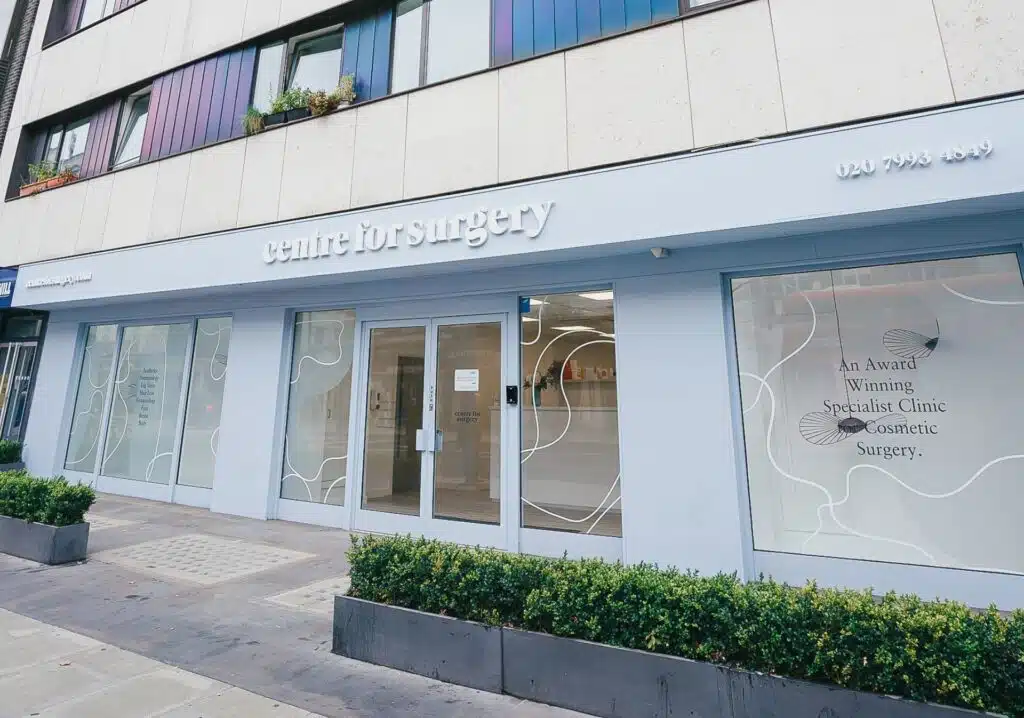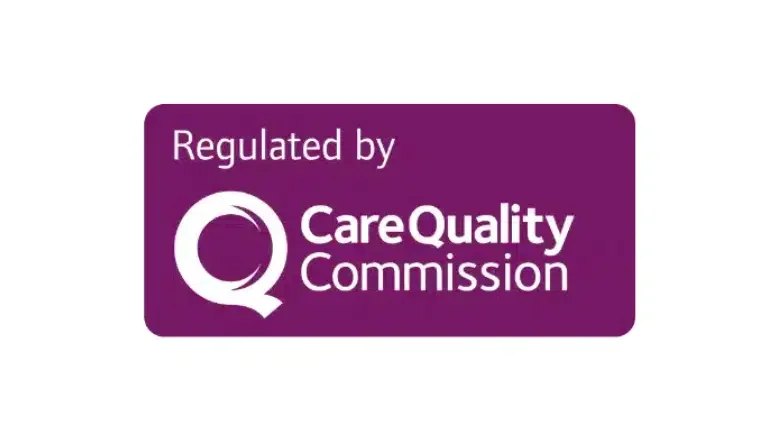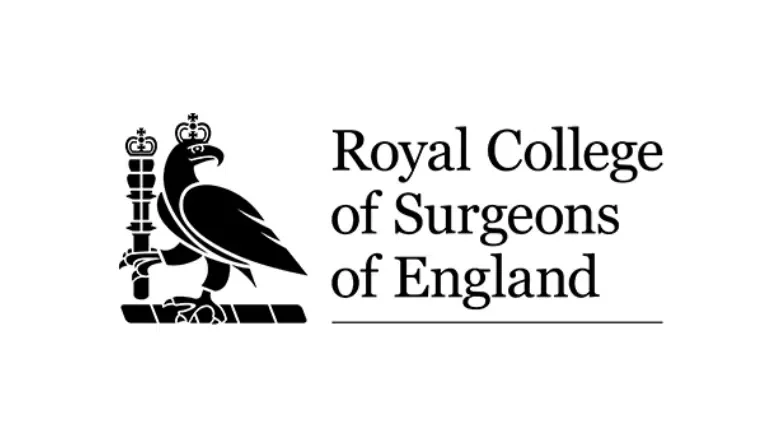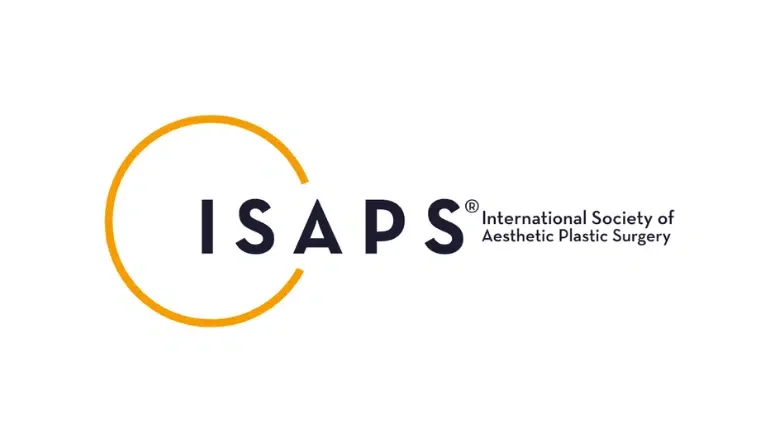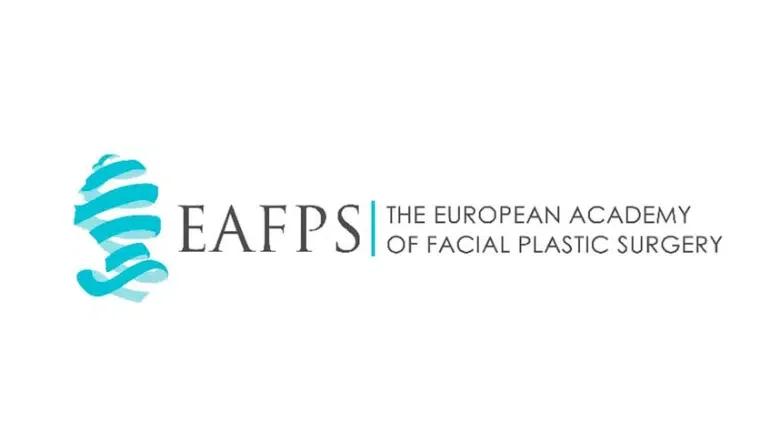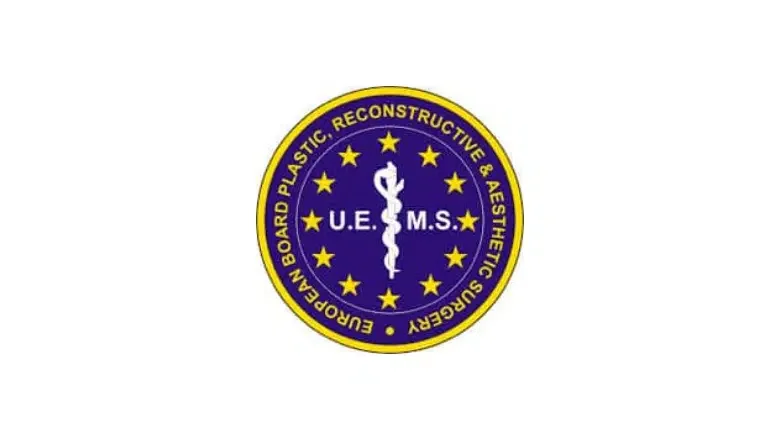How to get the best breast augmentation recovery at Centre for Surgery
Breast augmentation, also known as a “boob job,” is a popular cosmetic plastic surgery in the UK that involves the use of breast implants and/or the transfer of the patient’s own body fat to enhance the size, shape, and appearance of the breasts. This procedure is ideal for individuals who wish to increase the size of their breasts, improve their shape, or restore volume lost due to pregnancy or weight loss.
RELATED: Breast Augmentation FAQs – Q&As about Breast Implant Surgery
Breast augmentation surgery is not intended to correct severely sagging breasts, which may require a breast lift. At Centre for Surgery, our team of breast surgery experts and specialist plastic surgeons in London are highly experienced in performing breast augmentation surgeries using the latest techniques and technologies.
During the procedure, our surgeons use Mentor implants to achieve the best possible results. These implants are made from high-quality silicone and are designed to look and feel like natural breasts. They come in a variety of sizes and shapes, allowing patients to choose the best option for their individual needs and desired outcome.
We understand that each patient’s needs and goals are unique. That’s why we offer personalised consultations to help our patients determine the best course of action for achieving their desired results. We also provide comprehensive pre-and post-operative care to ensure a safe and successful recovery.
Our breast augmentation procedures are performed under general anaesthesia and typically take between one and two hours to complete. Patients can expect to experience some discomfort and swelling in the days following the surgery, but this can be managed with pain medication and proper care.
How to Prepare for Breast Augmentation Surgery
Preparing for breast augmentation surgery is an important step to ensure a safe and successful procedure. Here are some key points outlining what to expect and how to prepare:
- Consultation with a Plastic Surgeon – Before scheduling the surgery, patients should consult with a plastic surgeon to discuss their goals, expectations, and medical history.
- Medical assessment – Patients may need to undergo a medical evaluation to determine if they are healthy enough for surgery.
- Stop Smoking – It’s recommended that patients stop smoking several weeks before the surgery, as smoking can increase the risk of complications.
- Medications – Patients should disclose all medications, vitamins, and supplements they are taking to their surgeon as some may need to be temporarily discontinued prior to surgery.
- Lab Tests – Patients may need to undergo blood tests or other lab tests to ensure they are healthy enough for surgery.
- Fasting – Patients should fast for at least 6 hours before the surgery to prevent any complications.
- Arrange for Help – Patients should arrange for someone to drive them home after the surgery and help with daily tasks during the recovery period.
- Comfortable Clothing – Patients should wear loose, comfortable clothing on the day of the surgery that can be easily removed and put back on.
- Avoiding Blood Thinners – Patients should avoid taking blood-thinning medications and supplements for at least two weeks before the surgery.
- Prepare for Recovery – Patients should plan ahead for the recovery period by having soft foods, comfortable clothing, and a comfortable space to rest and recuperate.
Timeline for Recovery after Breast Augmentation – week by week
Recovering from breast augmentation surgery at Centre for Surgery in London is an important process that requires patience, rest, and proper care. The timeline for recovery can vary from patient to patient, but generally, it takes several weeks to feel back to normal. Here’s a week-by-week guide to what you can expect during the recovery process:
Week 1:
The first week after breast augmentation surgery is typically the most difficult. Patients will experience some pain, swelling, and bruising in the chest area. It’s important to take it easy during this time, and to avoid any strenuous activity or heavy lifting.
Patients will also be required to wear a supportive bra or compression garment to help minimize swelling and provide support to the breasts. Sleeping on your back with your upper body slightly elevated can also help to reduce swelling and discomfort.
Most patients can return to work within a week, but it’s important to avoid any physical activity or heavy lifting for at least two weeks after surgery.
Week 2:
During the second week of recovery, patients will begin to feel more comfortable and the swelling and bruising will start to subside. However, it’s still important to avoid any strenuous activity or heavy lifting during this time.
Patients should continue to wear a supportive bra or compression garment, and should avoid sleeping on their stomach or side.
It’s important to attend any follow-up appointments with your surgeon at our Baker Street clinic during this time to ensure that your recovery is going smoothly and there are no complications.
Week 3:
By the third week, patients should start to feel more like themselves. The swelling and bruising will continue to subside, and patients may be able to start wearing a regular bra again.
During this time, patients can begin to slowly reintroduce light exercise into their routine, but should still avoid any heavy lifting or strenuous activity.
It’s important to continue attending follow-up appointments with your surgeon to monitor your progress and ensure that your recovery is going as planned.
Week 4:
By the fourth week, patients should start to feel much better. The swelling and bruising should be significantly reduced, and patients may be able to resume normal activities, including exercise.
Patients should still continue to wear a supportive bra or compression garment during this time, and should continue to avoid sleeping on their stomach or side.
It’s important to continue attending follow-up appointments with your surgeon to monitor your progress and ensure that your recovery is on track.
Month 2:
By the end of the second month, patients should be feeling almost completely back to normal. The swelling and bruising should be gone, and patients can resume all normal activities, including exercise and heavy lifting.
Patients should continue to attend follow-up appointments with their surgeon to ensure that their recovery is complete and there are no complications.
Long-Term:
While most patients will have fully recovered by the end of two months, it’s important to keep in mind that breast implants are not permanent and may need to be replaced at some point in the future. Patients should also continue to attend regular appointments with their surgeon to monitor their breast health and ensure that there are no complications or issues.
By following a proper recovery timeline and working closely with their surgeon, patients can ensure a safe and successful recovery after breast augmentation surgery.
Top Tips for Faster Recovery After Breast Augmentation
Breast augmentation is a significant surgery that requires proper care and attention to ensure a safe and successful recovery. Here are some top tips for a faster recovery after breast augmentation surgery:
-
Follow Your Surgeon’s Instructions:
Your surgeon will provide you with a detailed set of post-operative instructions. It is important to follow these instructions carefully to ensure a safe and speedy recovery. The instructions may include advice on medications, physical activity, and the use of compression garments or support bras.
-
Rest:
Rest is an essential part of the recovery process. You should plan to take at least a week off work to rest and allow your body to heal. Avoid any strenuous activities or heavy lifting during this time. Getting plenty of rest will help your body to recover more quickly.
-
Eat a Healthy Diet:
Eating a healthy, well-balanced diet is important for the healing process. Foods that are high in protein, such as lean meats and legumes, can help to promote healing and tissue repair. It is also important to stay hydrated and drink plenty of water.
-
Avoid Smoking:
Smoking can slow down the healing process and increase the risk of complications. It is recommended to avoid smoking before and after breast augmentation surgery to ensure a smooth and speedy recovery.
-
Avoid Alcohol:
Alcohol can interfere with the healing process and cause dehydration. It is recommended to avoid alcohol for at least a week after breast implant surgery to help speed up the recovery process.
-
Wear a Support Bra:
Your surgeon will likely recommend that you wear a supportive bra or compression garment after surgery. This will help to reduce swelling and provide support to the breasts as they heal.
RELATED: How to choose the right bra after breast augmentation
-
Start Moving:
While it is important to rest, it is also important to start moving as soon as possible after surgery. Gentle exercises such as walking can help to improve circulation and promote healing. Your surgeon will provide guidance on when it is safe to start exercising again.
RELATED: When can I exercise after breast augmentation?
-
Attend Follow-Up Appointments:
It is important to attend all follow-up appointments with your surgeon at Centre for Surgery to ensure that your recovery is progressing as planned. Your surgeon will be able to monitor your progress, answer any questions you may have, and provide further guidance on your recovery.
What symptoms should prompt me to get medical help?
While some discomfort and side effects are normal, there are certain symptoms that may indicate a problem and require immediate medical attention. Here are some signs that you should seek medical help after breast augmentation:
-
High Fever:
If you experience a fever above 38 degrees Celsius, it may indicate an infection. An infection can occur if bacteria enter the body through the surgical incision. Symptoms of an infection may include redness, warmth, and tenderness around the incision site, as well as discharge or pus. A high fever, in combination with any of these symptoms, warrants immediate medical attention.
-
Excessive Bleeding:
It is normal to experience some bleeding and bruising after breast augmentation surgery, but excessive bleeding may indicate a problem. If you notice significant blood loss from the surgical site, contact your surgeon immediately. You may have developed a breast haematoma.
-
Severe Pain:
While some pain and discomfort are normal after breast augmentation surgery, severe pain can indicate a complication. If you experience pain that is not relieved by medication or pain that gets worse over time, it may be a sign of a problem. Notify your surgeon immediately if you experience severe pain.
-
Difficulty Breathing:
If you experience difficulty breathing or shortness of breath, it may be a sign of a pulmonary embolism. This condition occurs when a blood clot forms in the lungs and can be life-threatening. If you experience any difficulty breathing, contact your surgeon immediately or go to the emergency room.
-
Changes in Breast Appearance:
If you notice any significant changes in the appearance of your breasts, such as asymmetry, unusual swelling or redness, or changes in skin texture, contact your surgeon immediately. These symptoms may indicate an infection or other complication that requires prompt medical attention.
-
Numbness or Tingling:
It is normal to experience some numbness or tingling in the breasts and nipples after breast augmentation surgery. However, if you experience a sudden loss of sensation or significant numbness, it may be a sign of nerve damage or other complications. Notify your plastic surgeon immediately if you experience any significant changes in sensation.
-
Persistent Fever, Chills, or Nausea:
While some nausea and discomfort are normal after surgery, if you experience persistent fever, chills, or nausea, it may be a sign of infection or other complications. Contact your surgeon immediately if you experience any of these symptoms.
RELATED: What are the risks of breast augmentation?
Do’s and Don’ts during recovery after Breast Augmentation
Following the proper do’s and don’ts during the recovery period can help ensure a smooth and successful healing process. Here are some important do’s and don’ts to follow during recovery after breast augmentation:
Do’s:
- Follow your surgeon’s instructions: Your surgeon will provide you with specific instructions on how to care for yourself after surgery. It is important to follow these instructions closely to ensure a safe and successful recovery.
- Get plenty of rest: It is important to get plenty of rest and avoid strenuous activities for the first few weeks after surgery. This will help your body heal and reduce the risk of complications.
- Wear a supportive bra: Your surgeon will recommend a supportive bra to wear during the recovery period. This will help reduce swelling and discomfort and provide support for your breasts as they heal.
- Take pain medication as prescribed: Your surgeon may prescribe pain medication to help manage any discomfort you may experience. It is important to take this medication as prescribed to help manage pain and promote healing.
- Attend follow-up appointments: Your surgeon will schedule follow-up appointments to monitor your progress and ensure proper healing. It is important to attend these appointments to ensure that you are healing properly and to address any concerns or issues.
Don’ts:
- Don’t lift heavy objects: It is important to avoid lifting heavy objects for the first few weeks after surgery. Lifting heavy objects can strain the chest muscles and may lead to complications.
- Don’t engage in strenuous activities: For the first few weeks after surgery, avoid strenuous activities such as running, weightlifting, or high-impact exercise. These activities can strain the chest muscles and may lead to complications.
- Don’t smoke or use nicotine products: Smoking and nicotine products can interfere with the healing process and increase the risk of complications. Avoiding these products for at least two weeks before and after surgery is important.
- Don’t expose incisions to water or sunlight: For at least two weeks after surgery, it is important to keep your incisions dry and avoid exposing them to direct sunlight or water. This will help reduce the risk of infection and promote proper healing.
- Don’t ignore any signs of complications: If you experience any signs such as fever, excessive bleeding, or severe pain, it is important to seek medical attention immediately. Ignoring these symptoms can lead to more serious complications and prolong the recovery period.
RECOVERY AFTER BREAST AUGMENTATION FAQs
How painful is breast augmentation recovery?
The level of pain experienced during breast augmentation recovery can vary from patient to patient. Most patients report experiencing some discomfort, tenderness, and soreness in the first few days following surgery. However, this discomfort can be managed with pain medication and typically subsides within a few weeks.
What day is the most painful after breast augmentation surgery?
The first few days after breast augmentation surgery are typically the most uncomfortable and painful for most patients. However, pain and discomfort usually begin to subside after the first week.
What is the fastest way to recover from breast augmentation?
The fastest way to recover from breast augmentation is to follow your surgeon’s post-operative instructions closely, get plenty of rest, avoid strenuous activities, wear a supportive bra, take pain medication as prescribed, attend follow-up appointments, and maintain a healthy diet and lifestyle.
RELATED: How long is breast augmentation recovery?
Can I lift my arms after breast implant surgery?
Most surgeons recommend avoiding lifting heavy objects or engaging in strenuous activities for the first few weeks after breast surgery. However, gentle movements such as raising your arms to shoulder height are typically safe and may even be recommended to promote circulation and prevent stiffness.
Can I sleep on my side after breast implant surgery?
Most surgeons recommend avoiding sleeping on your side or stomach for at least the first few weeks after breast implant surgery. Sleeping on your back with your head elevated can help reduce swelling and promote healing.
When can I shower after breast augmentation surgery?
Your surgeon will provide you with specific instructions on when it is safe to shower after breast surgery. In general, most patients are able to shower within a few days after surgery, but should avoid soaking the incisions in water.
Does the stomach swell after breast augmentation?
It is possible for the stomach to swell after breast augmentation surgery due to fluid retention and the body’s natural healing process. However, this swelling should subside within a few weeks as the body heals.
Will I need drains after breast augmentation?
Some surgeons may use drains to help reduce the risk of fluid buildup after breast augmentation surgery. However, not all patients require drains, and this will depend on the surgical technique and individual factors.
How long will my chest feel tight after breast augmentation?
Chest tightness and discomfort are common in the first few weeks after breast augmentation surgery. However, this should subside within a few weeks as the body heals.
How much time should I take off work after breast augmentation?
The amount of time needed off work after breast augmentation surgery will depend on the individual patient and the nature of their work. Most patients require at least one week off work, but some may need up to two weeks or more to fully recover.
What happens if I don’t wear a compression bra after breast augmentation?
Wearing a compression bra after breast augmentation surgery can help reduce swelling, promote healing, and support the breasts. Failure to wear a compression bra, as your surgeon recommends, may prolong the recovery process and increase the risk of complications.
How can I minimise scars after breast augmentation?
Your surgeon will provide you with specific instructions on how to care for your incisions after breast augmentation surgery. To minimise scars, it is important to keep the incisions clean and dry, avoid exposing them to direct sunlight, and avoid smoking or using nicotine products. Scar massage and the use of silicone sheets or gels may also be recommended to promote healing and minimise scarring.
Learn more about recovery after breast augmentation at Centre for Surgery
Centre for Surgery is considered the leading cosmetic surgery clinic in the UK and is home to some of the best plastic surgeons in London. We only use the highest quality Mentor breast implants, which have been clinically proven and are backed by a comprehensive breast implant warranty. Call us today to learn more about recovery after breast augmentation at 020 7993 4849 or complete the contact form below.

